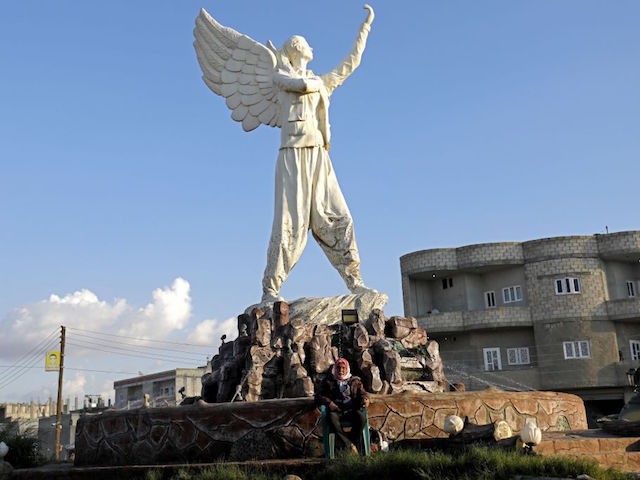A community of Muslims who converted to Christianity over the brutality displayed by the Islamic State (ISIS/ISIL) during its reign of terror is reportedly growing in the once-besieged border town of Kobani, Syria, where the terrorist group suffered its first major defeat, Reuters learned this week.
On Tuesday, Reuters reported:
A community of Syrians who converted to Christianity from Islam is growing in Kobani, a town besieged by Islamic State for months … The converts say the experience of war and the onslaught of a group claiming to fight for Islam pushed them toward their new faith. After a number of families converted, the Syrian-Turkish border town’s first evangelical church opened last year.
The Christian converts in Kurdish-majority Kobani managed to survive the jihadis’ genocide campaign against various religious minorities, mainly Yazidis and Christians.
At one point, followers of Jesus Christ were on the brink of extinction due to the lethality of the ISIS offensive against them in Iraq, considered the cradle of Christianity.
Although ISIS lost its territorial caliphate last month — thanks to U.S.-backed local fighters and to a lesser extent Russian- and Iranian-backed dictator Bashar al-Assad’s forces — American intelligence and military officials believe thousands of ISIS jihadis remain a menace in the Middle East and all other corners of the globe, including the Western Hemisphere and Africa.
Assisted by the U.S.-led coalition, fighters from the People’s Protection Units (YPG), the armed wing of the Democratic Union Party (PYD) that controls the self-declared autonomous region in northern Syria, liberated Kobani in 2015.
“After the war with Islamic State people were looking for the right path, and distancing themselves from Islam,” Omar Firas, the founder of Kobani’s first evangelical church, which opened last year, told Reuters. “People were scared and felt lost.”
“This was painted by IS [Islamic State] as a religious conflict, using religious slogans. Because of this a lot of Kurds lost trust in religion generally, not just Islam,” he said.
ISIS pushed many Kurds to become atheist or agnostic, Firas indicated, adding, “But many others became Christian. Scores here and more in Afrin.”
The Kobani church founder, who works for a Christian aid group assisting displaced people who helped erect the worshipping center, estimated that about 20 families consisting of 80 to 100 followers of Christ worship at the reasonably new church.
“We meet on Tuesdays and hold a service on Fridays. It is open to anyone who wants to join,” he proclaimed.
Reuters identified the current pastor as 34-year-old Christian convert Zani Bak who arrived last year from Afrin, a northern Syria Kurdish town that was also once held by ISIS.
In Syria, support for Assad has split members of the Christian minority. Some Christians consider him their protector against the Sunni jihadi groups and overall terrorists operating in Syria while others see him as a murderous dictator who does not blink an eye when it comes to using chemical weapons against his people, killing hundreds of thousands.
Reuters acknowledged that not everyone, even members of the Muslim majority who renounce ISIS for killing friends and family, welcomes the growing Christian presence in Kobani, noting:
Critics view the new converts with suspicion, accusing them of seeking personal gain such as financial help from Christian organizations working in the region, jobs and enhanced prospects of emigration to European countries. The newly-converted Christians of Kobani deny those accusations. They say their conversion was a matter of faith.
Kobani is part of the self-declared Kurdish autonomous region in northern Syria known as Rojava and ruled by the Democratic Union Party (PYD), the political wing of the People’s Protection Units (YPG) who continue to help the U.S.-led coalition deal a lasting defeat to ISIS.

COMMENTS
Please let us know if you're having issues with commenting.